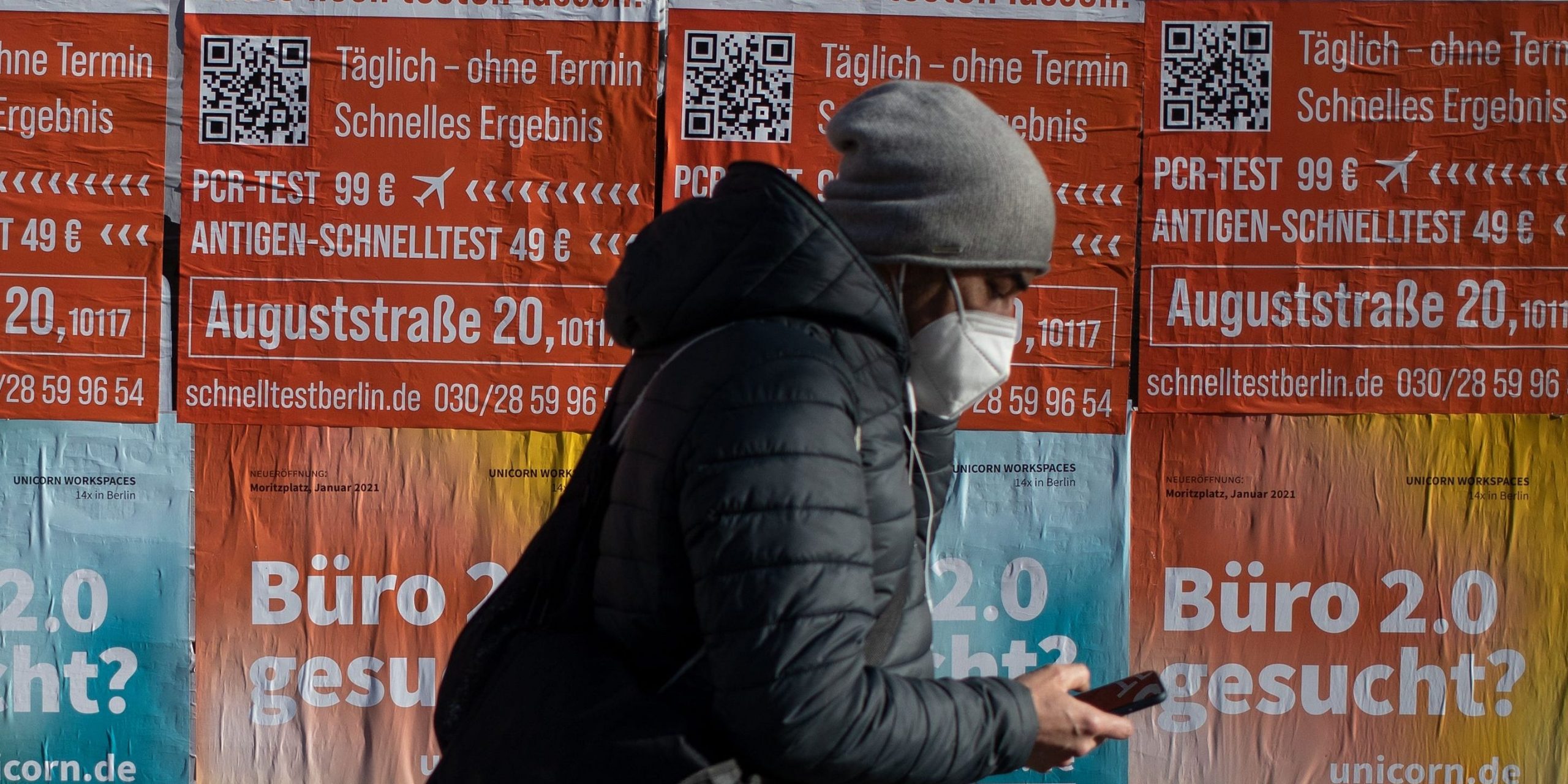
David Gannon/Getty Images
- The eurozone economy shrank by 0.7% in the final quarter, compared with the previous three months.
- It meant the euro area’s economy shrank by a record 6.8% in 2020.
- Analysts now think the recovery will be slower, thanks in part to vaccine rollout problems.
- Sign up here for our daily newsletter, 10 Things Before the Opening Bell
The eurozone economy shrank by less than expected in the final three months of the year, official figures showed on Tuesday, although economists expect the bloc to struggle in the first few months of 2021 due to new lockdowns and a slow vaccine rollout.
Eurozone GDP fell 0.7% quarter on quarter in the October to December period, the EU’s official statistics body said, after a rapid expansion of 12.4% in the third quarter. Economists polled by Reuters had predicted a fall of 1%.
Germany eked out growth of 0.1% quarter on quarter, helping the overall figures, while Spain expanded 0.4%. But France’s economy shrank 1.3% and Italy’s contracted 2%.
Read More: Jefferies says to buy these 24 stocks that represent its analysts’ highest-conviction picks for 2021
The slight fall in the final quarter meant the eurozone economy shrank by 6.8% in 2020 as a whole, according to Eurostat’s first estimate, by far the worst contraction in the bloc’s 31-year history.
The euro fell after the figures were released, and stood 0.21% lower at $1.204 just before 6am ET. Europe's Stoxx 600 stock index was 1.32% higher.
Many economists anticipate a further contraction for the eurozone economy in the first quarter of 2021 thanks to elevated coronavirus cases, tough restrictions, and problems with the rollout of vaccines. The EU is lagging behind the UK and US when it comes to the number of shots given.
Claus Vistesen, chief eurozone economist at Pantheon Macroeconomics, said: "We are confident that the recovery will start in Q2, but we now think it will be a lot slower to begin, due to [the] slower-than-expected vaccination effort."
The International Monetary Fund last month downgraded its outlook for the euro area, reflecting "an observed softening of activity toward the end of 2020, which is anticipated to continue into early 2021 amid rising infections and renewed lockdowns."
The IMF now expects the eurozone economy to grow 4.2% in 2021, compared to the 5.2% growth it expected in October 2020.
Survey data released towards the end of January showed a sharp fall in business activity, thanks to ongoing coronavirus restrictions.
Vistesen said a drop in consumer spending was the "primary driver" of the fall in GDP in the final quarter. "This sector will remain a drag on the economy in Q1," he said.
The eurozone economy shrank 5.1% in the final quarter of 2020 when compared with the same period a year earlier.